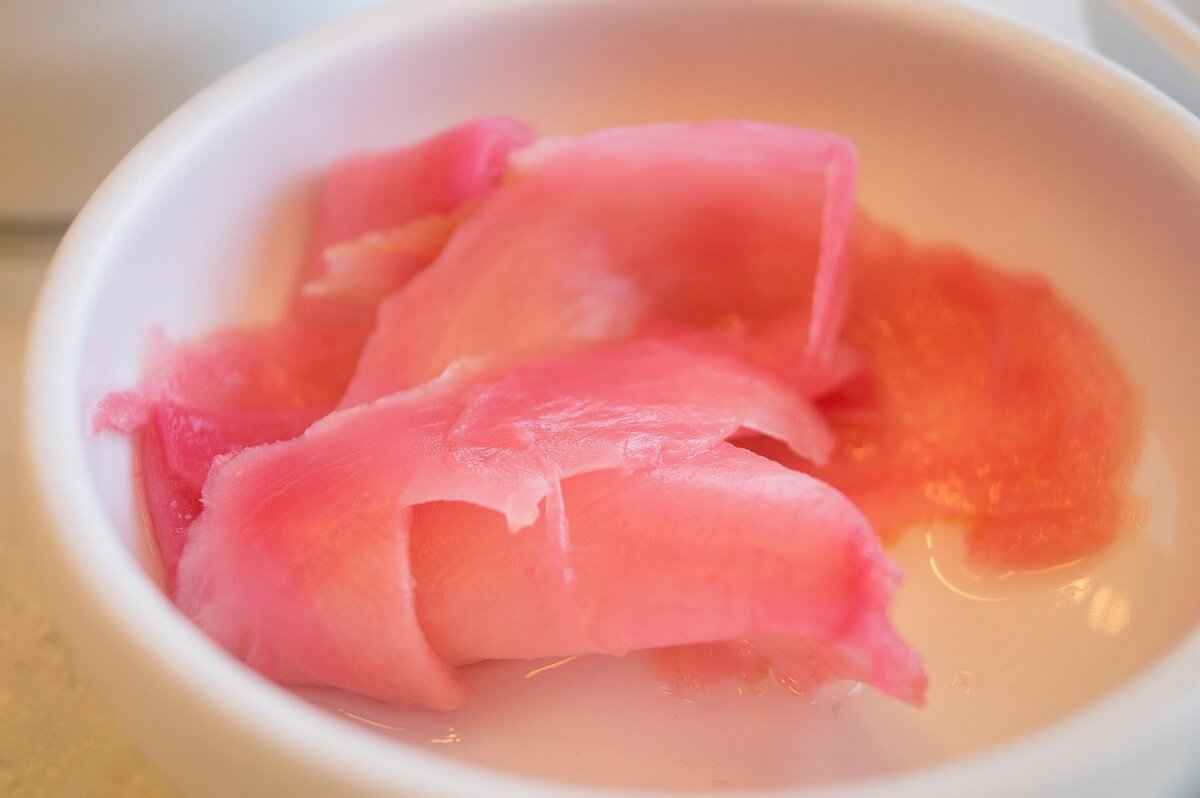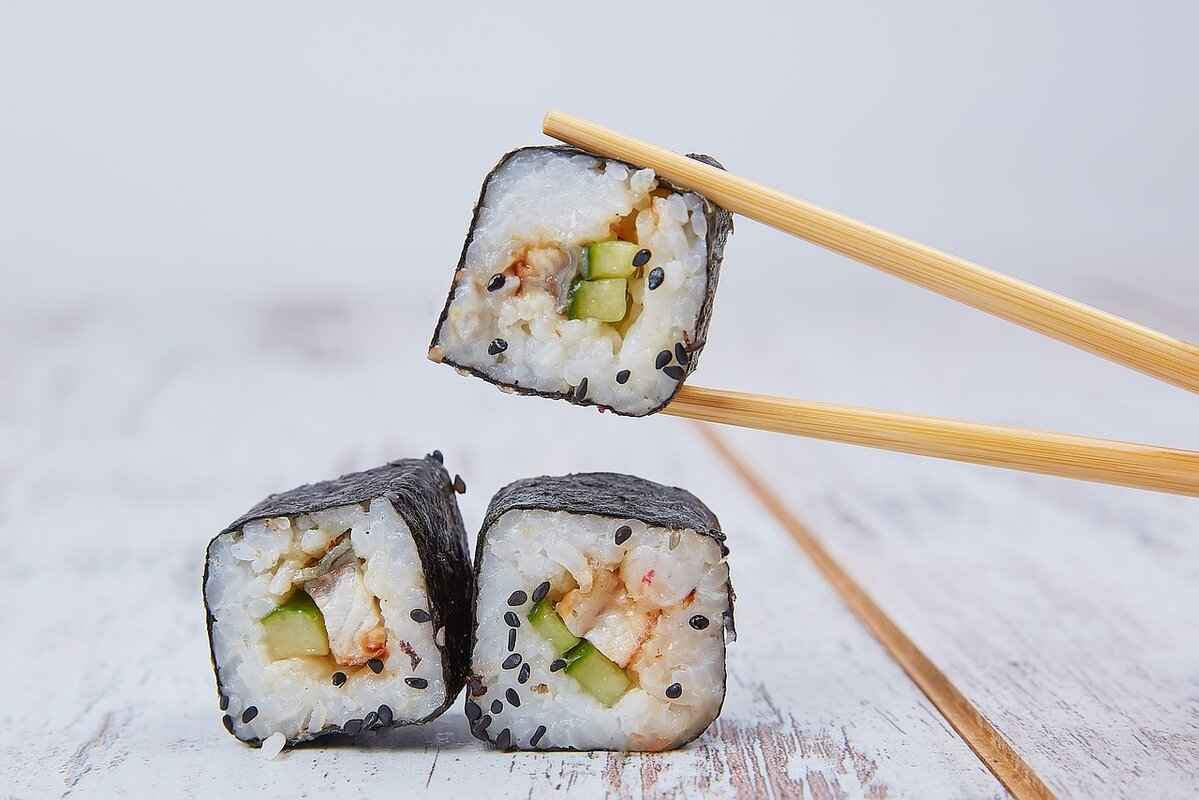The Japanese diet has gained international recognition for its remarkable health benefits, particularly in promoting longevity and facilitating effective weight loss. With its emphasis on balanced nutrition and mindful eating practices, this dietary approach not only nourishes the body but also fosters a healthier relationship with food.
The foundation of the Japanese diet lies in its diversity of fresh and seasonal ingredients. Key components include:
- Fish: A primary source of protein, rich in omega-3 fatty acids.
- Vegetables: A variety of colors and types, providing essential vitamins and minerals.
- Rice: The staple carbohydrate, often enjoyed in moderation.
- Fermented Foods: Items like miso and pickles that support gut health.
Portion control is a crucial element of the Japanese diet. Meals are often served in smaller portions, which helps to:
- Prevent overeating by allowing the body to recognize fullness.
- Encourage mindful eating, where individuals savor each bite.
Mindful eating is deeply ingrained in Japanese culture. This practice involves:
- Savoring meals: Taking time to appreciate flavors and textures enhances satisfaction.
- Reducing distractions: Eating without the interference of screens or multitasking promotes focus on food.
Engaging in mindful eating not only increases enjoyment but also positively impacts digestion. Eating slowly allows:
- The body to better process food, leading to improved nutrient absorption.
- For the release of digestive enzymes, facilitating easier breakdown of food.
Practicing mindful eating can significantly improve mental well-being. Benefits include:
- Fostering a healthier relationship with food, reducing feelings of guilt or anxiety.
- Encouraging self-awareness, which can lead to better food choices.
Traditional Japanese foods are not only delicious but also packed with nutrients. Some staples include:
- Miso: A fermented paste rich in probiotics.
- Tofu: A great source of plant-based protein.
- Seaweed: High in minerals and antioxidants.
Research indicates a strong connection between the Japanese diet and increased lifespan. Factors contributing to longevity include:
- A high intake of antioxidants from vegetables, which combat oxidative stress.
- Regular consumption of fish, known for its heart health benefits.
Fish is a cornerstone of the Japanese diet, offering numerous health benefits:
- Rich in omega-3 fatty acids, which support cardiovascular health.
- Linked to improved cognitive function and lower rates of dementia.
The Japanese diet’s emphasis on vegetables provides a wealth of antioxidants, which:
- Help protect cells from damage.
- Support overall cellular health and function.
Beyond dietary choices, lifestyle factors also play a significant role in promoting longevity:
- Regular physical activity: Common in Japan, it supports overall health and complements dietary habits.
- Social connections: Communal meals enhance emotional well-being and contribute to a longer life.

What Are the Key Components of the Japanese Diet?
The Japanese diet is renowned for its emphasis on fresh, high-quality ingredients that contribute to overall health and well-being. By focusing on a variety of foods, including fish, vegetables, and rice, this diet not only provides essential nutrients but also promotes longevity and weight management. Understanding the key components of the Japanese diet is crucial for anyone looking to adopt healthier eating habits.
The foundation of the Japanese diet lies in its diverse and balanced components. Here are the primary elements:
- Fish: A staple in Japanese cuisine, fish is rich in omega-3 fatty acids, which are known for their heart health benefits. Regular consumption of fish contributes to lower cholesterol levels and improved brain function.
- Vegetables: The Japanese diet includes a wide variety of seasonal vegetables, providing an abundance of vitamins, minerals, and antioxidants. These nutrients help combat oxidative stress and reduce the risk of chronic diseases.
- Rice: As a primary carbohydrate source, rice serves as the backbone of many meals. It is typically consumed in moderation, providing energy while allowing room for other nutrient-dense foods.
- Fermented Foods: Traditional foods like miso and pickled vegetables are common in the Japanese diet. These foods are rich in probiotics, which support gut health and enhance digestion.
- Seaweed: Often used in soups and salads, seaweed is packed with essential minerals and vitamins. It is particularly high in iodine, which is vital for thyroid function.
Incorporating these components into daily meals not only enhances flavor but also ensures a well-rounded intake of nutrients.
The diverse ingredients found in the Japanese diet offer numerous health benefits:
- Heart Health: The high intake of fish and omega-3 fatty acids is associated with a reduced risk of cardiovascular diseases.
- Weight Management: The emphasis on portion control and nutrient-dense foods helps maintain a healthy weight without sacrificing flavor.
- Improved Digestion: Fermented foods promote a healthy gut microbiome, aiding digestion and enhancing nutrient absorption.
- Longevity: The combination of balanced nutrition and active lifestyle contributes to the longer life expectancy observed in Japan.
By understanding these key components, individuals can appreciate how the Japanese diet fosters a holistic approach to health. The focus on fresh ingredients and mindful eating practices not only supports physical health but also encourages a deeper connection to food and culture.
In conclusion, the Japanese diet exemplifies the benefits of incorporating a variety of fresh, whole foods into daily meals. By embracing these principles, anyone can enhance their overall health and well-being.

How Does Portion Control Contribute to Weight Loss?
Portion control is a crucial element of the Japanese diet, which promotes not only weight management but also overall health. By serving smaller portions, individuals are encouraged to listen to their bodies and recognize their hunger cues. This practice is deeply embedded in Japanese culture, where meals are often served in a variety of small dishes, allowing for a diverse range of flavors without overwhelming the palate or the stomach.
One of the key benefits of smaller serving sizes is that they help prevent overeating. In many Western cultures, larger portion sizes can lead to excessive calorie intake, often without the individual realizing it. In contrast, the Japanese approach emphasizes moderation, encouraging individuals to enjoy their meals while being mindful of how much they consume. This can create a natural balance, allowing for a satisfying meal experience without the guilt or discomfort that often accompanies overeating.
Additionally, portion control contributes to maintaining a healthy weight by promoting a more balanced diet. When meals are served in smaller portions, individuals are more likely to include a variety of foods, such as vegetables, fish, and whole grains. This variety not only enhances the nutritional quality of the diet but also ensures that individuals receive essential vitamins and minerals necessary for optimal health.
Another significant aspect of portion control is its role in mindful eating. In Japan, meals are often enjoyed slowly, allowing individuals to savor each bite. This practice not only enhances the enjoyment of food but also aids in digestion. When people eat slowly, they give their bodies time to signal when they are full, which can prevent the tendency to overeat. Research has shown that those who practice mindful eating are more likely to maintain a healthy weight and develop a positive relationship with food.
Moreover, portion control can also have psychological benefits. By focusing on smaller portions, individuals may feel less pressure to finish large servings, which can reduce stress and anxiety around eating. This shift in mindset fosters a healthier relationship with food, encouraging individuals to view meals as a source of nourishment rather than a means to fulfill emotional needs.
In conclusion, portion control is a fundamental aspect of the Japanese diet that plays a vital role in promoting healthy eating habits and weight management. By embracing smaller serving sizes, individuals can enjoy a diverse range of foods, practice mindful eating, and foster a positive relationship with their meals. This holistic approach not only supports weight loss but also enhances overall well-being, making it a valuable practice for anyone looking to improve their health.
What Is the Role of Mindful Eating?
Mindful eating is a fundamental aspect of the Japanese culture, deeply embedded in its culinary practices. This approach encourages individuals to fully engage with their food, promoting a deeper appreciation for each meal. By focusing on the flavors, textures, and aromas of their dishes, people are more likely to experience enhanced satisfaction, which can significantly reduce the chances of overeating.
In Japan, meals are often enjoyed in a calm and serene environment, allowing individuals to savor each bite. This practice not only enhances the overall dining experience but also fosters a stronger connection between the eater and the food. When individuals take the time to appreciate their meals, they become more aware of their hunger and fullness cues, leading to better portion control and healthier eating habits.
Moreover, mindful eating encourages a slower pace during meals. The act of eating slowly allows the body to signal when it is full, which can prevent the common issue of overeating. Research indicates that it takes approximately 20 minutes for the brain to register that the stomach is full. By practicing mindful eating, individuals can give their bodies the time needed to communicate these signals effectively.
Additionally, the Japanese diet emphasizes the importance of variety and balance. Meals typically consist of a range of ingredients, including fish, vegetables, and rice, all served in smaller portions. This not only promotes nutritional balance but also aligns with the principles of mindful eating by encouraging individuals to appreciate the diverse flavors and nutritional benefits of each component.
Mindful eating also has psychological benefits. Engaging fully with food can lead to a healthier relationship with it, reducing feelings of guilt or anxiety associated with eating. This approach promotes a sense of peace and enjoyment during meals, which can contribute to improved mental well-being. By focusing on the present moment and the experience of eating, individuals can cultivate a more positive outlook on their dietary choices.
Furthermore, the social aspect of meals in Japanese culture enhances the practice of mindful eating. Sharing meals with family and friends fosters a sense of community and connection, which can improve emotional health. Eating together encourages conversations and interactions that can make the experience more enjoyable and fulfilling.
In conclusion, the role of mindful eating in Japanese culture is multifaceted, contributing not only to physical health through better portion control and nutrient absorption but also to emotional and psychological well-being. By embracing the principles of mindful eating, individuals can enhance their overall dining experience, leading to a healthier and more satisfying relationship with food.
How Does Mindful Eating Affect Digestion?
Mindful eating is a practice that significantly enhances the overall experience of consuming food. It not only boosts the enjoyment of meals but also plays a crucial role in aiding digestion. By slowing down the pace at which we eat, we allow our bodies to process food more effectively, leading to improved nutrient absorption and overall health.
When individuals engage in mindful eating, they become more aware of their hunger cues and the flavors of their food. This heightened awareness helps in recognizing when they are truly satisfied, which can prevent overeating. The Japanese culture exemplifies this practice, as meals are often enjoyed in a calm and deliberate manner. This approach allows individuals to appreciate the textures, tastes, and aromas of their food, making the eating experience more fulfilling.
Research indicates that eating slowly can have profound effects on digestion. When we rush through meals, our bodies may not produce enough saliva, which is essential for breaking down food. Furthermore, slower eating encourages the stomach to signal the brain when it is full, reducing the likelihood of consuming excess calories. This process not only aids in digestion but also helps maintain a healthy weight.
| Benefits of Mindful Eating | Description |
|---|---|
| Improved Digestion | Allows for better breakdown of food, leading to enhanced nutrient absorption. |
| Weight Management | Helps control portion sizes and reduces overeating. |
| Enhanced Satisfaction | Encourages appreciation of flavors and textures, leading to greater meal satisfaction. |
| Stress Reduction | Promotes a calm eating environment, reducing anxiety related to meals. |
Incorporating mindful eating into daily routines can also lead to psychological benefits. By fostering a more positive relationship with food, individuals can reduce stress and anxiety surrounding eating. This practice encourages individuals to savor each bite, leading to a more enjoyable dining experience. Additionally, it can help in recognizing emotional triggers that lead to unhealthy eating habits.
To practice mindful eating, consider the following tips:
- Eliminate distractions: Turn off screens and focus solely on your meal.
- Chew thoroughly: Take time to chew each bite, allowing flavors to develop.
- Engage your senses: Notice the colors, aromas, and textures of your food.
- Listen to your body: Pay attention to hunger and fullness cues.
In conclusion, mindful eating is a powerful practice that benefits both digestion and overall well-being. By slowing down and savoring our meals, we can enhance our relationship with food, promote better digestion, and support long-term health. Integrating these practices into daily life can lead to a more balanced and fulfilling approach to eating.
What Are the Psychological Benefits of Mindful Eating?
Mindful eating is a powerful practice that can significantly enhance one’s mental well-being. By focusing on the experience of eating, individuals can cultivate a healthier relationship with food, which in turn can lead to reduced stress and improved emotional health.
Engaging in mindful eating encourages individuals to be present during meals, allowing them to appreciate the flavors, textures, and aromas of their food. This practice helps in recognizing hunger and fullness cues, promoting a more intuitive approach to eating. As a result, individuals are less likely to engage in emotional eating, which often stems from stress or anxiety.
Mindful eating can serve as a form of meditation, providing a break from the chaos of daily life. By concentrating on each bite, individuals can create a calming ritual around meals. This focus can help lower cortisol levels, the hormone associated with stress, leading to a more relaxed state of mind. Moreover, by reducing the tendency to multitask during meals, individuals can experience greater satisfaction and enjoyment from their food.
Practicing mindful eating promotes emotional awareness by encouraging individuals to reflect on their feelings related to food. This self-reflection can unveil underlying emotions that influence eating habits, such as boredom, sadness, or anxiety. By identifying these triggers, individuals can develop healthier coping mechanisms rather than resorting to food as a source of comfort.
Over time, mindful eating can lead to improved self-esteem and body image. As individuals become more in tune with their bodies and their nutritional needs, they may develop a more positive outlook on their health and appearance. This shift in mindset can help combat negative thoughts and feelings associated with dieting and body image issues.
- Slow Down: Take time to chew each bite thoroughly and savor the flavors.
- Eliminate Distractions: Turn off screens and set aside phones during meals.
- Engage the Senses: Focus on the colors, smells, and textures of the food.
- Reflect on Feelings: Before eating, take a moment to consider what emotions you are experiencing.
- Practice Gratitude: Acknowledge the effort that went into preparing the meal and the nourishment it provides.
Incorporating these practices into daily life can enhance the benefits of mindful eating, leading to a more balanced and fulfilling relationship with food.
Ultimately, the psychological benefits of mindful eating extend beyond the dining table. By fostering a greater awareness of one’s eating habits and emotional triggers, individuals can cultivate a sense of peace and satisfaction that permeates other areas of their lives. This holistic approach to eating not only supports mental well-being but also encourages a healthier lifestyle overall.
What Traditional Japanese Foods Promote Health?
The Japanese diet is renowned for its health benefits, with a focus on traditional foods that not only tantalize the taste buds but also promote overall well-being. Among the most significant staples are miso, tofu, and seaweed. Each of these foods offers unique nutritional benefits that contribute to a balanced diet and enhance longevity.
Miso is a fermented soybean paste that is rich in probiotics, which support gut health. This fermented food is also a great source of protein, vitamins, and minerals. The fermentation process enhances its digestibility and adds beneficial enzymes. Regular consumption of miso can help in boosting immunity and reducing inflammation, making it a vital component of the Japanese diet.
Tofu, made from soybeans, is an excellent source of plant-based protein and contains all nine essential amino acids. It is low in calories and high in iron and calcium, making it an ideal choice for those looking to maintain a healthy weight. Tofu is also rich in isoflavones, which have been linked to a reduced risk of certain cancers and heart disease. Incorporating tofu into meals can enhance nutritional value while providing a satisfying texture.
Seaweed is another key element of the Japanese diet, packed with vitamins, minerals, and antioxidants. It is particularly high in iodine, which is essential for healthy thyroid function. Additionally, seaweed contains omega-3 fatty acids and dietary fiber, which promote heart health and aid in digestion. The antioxidants found in seaweed help combat oxidative stress, contributing to overall cellular health.
The combination of miso, tofu, and seaweed creates a nutrient-dense profile that supports various aspects of health. These foods are low in saturated fats and calories, making them ideal for weight management. Furthermore, their high antioxidant content helps protect against chronic diseases, including heart disease and diabetes. By focusing on these traditional foods, the Japanese diet promotes a holistic approach to health and wellness.
In Japan, the preparation and consumption of food are often accompanied by cultural practices that enhance their benefits. Meals are typically enjoyed in a mindful manner, allowing individuals to savor each bite and appreciate the flavors. This practice not only improves digestion but also fosters a positive relationship with food, reducing the likelihood of overeating.
- Start your day with a miso soup as a nutritious breakfast option.
- Use tofu in stir-fries, salads, or as a meat substitute in various dishes.
- Add seaweed to salads, sushi, or as a seasoning to enhance flavor and nutrition.
By incorporating these traditional Japanese foods into your diet, you can harness their health benefits while enjoying a variety of delicious meals.

How Does the Japanese Diet Influence Longevity?
The Japanese diet is often regarded as a key factor contributing to the remarkable longevity observed in Japan. Numerous studies have explored the intricate relationship between dietary habits and lifespan, revealing compelling insights into how specific food choices and eating practices can significantly influence health outcomes.
The Japanese diet is rich in fresh, seasonal ingredients that promote health and well-being. Staples such as rice, fish, vegetables, and fermented foods are not only nutritious but also low in calories. This balance is crucial in preventing obesity and related health issues, which are major contributors to a shorter lifespan.
Fish is a cornerstone of the Japanese diet, providing high-quality protein and essential omega-3 fatty acids. Research indicates that these fatty acids are vital for heart health, reducing the risk of cardiovascular diseases, which are prevalent in many Western diets. Additionally, omega-3s are linked to improved cognitive function, potentially lowering the risk of dementia.
Japanese cuisine emphasizes a wide variety of vegetables, which are packed with antioxidants and essential nutrients. These compounds help combat oxidative stress, a significant factor in aging and chronic diseases. The high consumption of vegetables in Japan contributes to lower rates of cancer and other age-related illnesses.
Portion control is a fundamental aspect of the Japanese way of eating. Meals are typically served in smaller portions, encouraging individuals to eat mindfully and savor each bite. This practice not only promotes a healthy weight but also allows the body to signal fullness more effectively, reducing the likelihood of overeating.
Mindful eating is deeply ingrained in Japanese culture. By focusing on the sensory experience of eating, individuals can enhance their satisfaction with meals, which may lead to healthier food choices over time. This practice fosters a positive relationship with food and can help mitigate emotional eating, further supporting longevity.
Fermented foods such as miso and natto are staples in the Japanese diet and are known for their probiotic content. These beneficial bacteria support gut health, which is increasingly recognized as essential for overall well-being. A healthy gut microbiome is linked to improved immune function and reduced inflammation, both of which are critical for longevity.
In addition to dietary choices, lifestyle factors play a significant role in promoting longevity. Regular physical activity, such as walking and traditional exercises, is common in Japan. This integration of movement with daily life complements the health benefits of the diet, creating a holistic approach to well-being.
Social interactions, particularly during meals, are an integral part of Japanese culture. Sharing food with family and friends not only enhances emotional health but also fosters a sense of community and belonging. Research suggests that strong social ties can significantly impact longevity, as they provide emotional support and reduce stress.
In summary, the Japanese diet is a multifaceted approach to health that emphasizes the importance of food quality, portion control, and mindful eating practices. Coupled with an active lifestyle and strong social connections, these dietary habits contribute to the impressive longevity observed in Japan.
What Role Does Fish Play in Health and Longevity?
Fish is a vital component of the Japanese diet, serving as a primary source of protein and a rich reservoir of omega-3 fatty acids. These essential fats are renowned for their numerous health benefits, particularly in promoting heart health and enhancing cognitive function. This article delves into the significant role fish plays in the context of health and longevity, exploring its nutritional profile and the impact it has on overall well-being.
Fish, particularly varieties such as salmon, mackerel, and sardines, are packed with nutrients. They are not only high in protein but also contain critical vitamins and minerals, including vitamin D, B vitamins, and selenium. The omega-3 fatty acids found in fish, specifically EPA and DHA, are linked to numerous health benefits.
Numerous studies have shown that omega-3 fatty acids can significantly reduce the risk of heart disease. They help lower blood pressure, reduce triglycerides, and decrease the risk of arrhythmias. Regular consumption of fish is associated with a lower incidence of heart attacks and strokes, making it an essential part of a heart-healthy diet.
In addition to cardiovascular benefits, fish consumption is linked to improved brain health. Omega-3 fatty acids are crucial for brain development and function. Research indicates that individuals who consume fish regularly may experience a lower risk of cognitive decline and conditions such as Alzheimer’s disease. The presence of DHA in fish is particularly important for maintaining neuronal health and supporting cognitive processes.
The connection between fish consumption and longevity is well-documented. Populations that consume high amounts of fish, such as those in Japan, often exhibit longer lifespans. This longevity is attributed not only to the nutritional benefits of fish but also to the overall dietary patterns and lifestyle factors present in these cultures. A diet rich in fish, combined with vegetables, whole grains, and fermented foods, creates a balanced nutritional profile that supports long-term health.
- Fatty Fish: Salmon, mackerel, sardines, and trout are excellent sources of omega-3 fatty acids.
- White Fish: Cod, haddock, and tilapia provide lean protein with fewer calories.
- Shellfish: Shrimp, oysters, and mussels are also nutritious options that offer a range of vitamins and minerals.
Health experts recommend consuming fish at least twice a week to reap its health benefits. Incorporating a variety of fish into your diet can help ensure a broad spectrum of nutrients. It’s essential to choose sustainably sourced fish to support environmental health as well.
While fish is generally considered healthy, there are some concerns regarding mercury and other contaminants found in certain fish species. Pregnant women and young children should be particularly cautious and opt for fish that are lower in mercury, such as salmon and sardines. It’s advisable to stay informed about local fish advisories to make safe choices.
In summary, fish is a cornerstone of the Japanese diet, providing essential nutrients that contribute to heart health, cognitive function, and overall longevity. By understanding its benefits and incorporating it into your meals, you can enhance your health and well-being.
How Do Antioxidants in Vegetables Support Longevity?
The Japanese diet is renowned for its health benefits, particularly its emphasis on vegetables, which are rich in essential antioxidants. Antioxidants play a critical role in protecting the body from oxidative stress, a condition that can lead to cellular damage and various health issues. This section delves deeper into how these antioxidants contribute to longevity and overall well-being.
Antioxidants are compounds that combat oxidative stress by neutralizing free radicals—unstable molecules that can damage cells. The consumption of foods high in antioxidants is linked to a lower risk of chronic diseases, including heart disease, cancer, and neurodegenerative disorders. The Japanese diet, rich in a variety of vegetables, provides a robust source of these protective compounds.
- Leafy Greens: Vegetables like spinach and kale are packed with vitamins A, C, and K, as well as flavonoids that help reduce inflammation.
- Cruciferous Vegetables: Broccoli and cabbage are known for their high levels of sulforaphane, an antioxidant that supports detoxification processes in the body.
- Root Vegetables: Carrots and sweet potatoes provide beta-carotene, which converts to vitamin A in the body and supports immune function.
- Tomatoes: Rich in lycopene, tomatoes are effective in reducing the risk of certain cancers and promoting heart health.
Oxidative stress occurs when there is an imbalance between free radicals and antioxidants in the body. This imbalance can lead to cellular damage, aging, and various diseases. Antioxidants neutralize free radicals, preventing them from causing harm. By incorporating a variety of colorful vegetables into their meals, individuals can enhance their antioxidant intake, thereby supporting cellular health and longevity.
The Japanese diet emphasizes seasonal and locally-sourced vegetables, ensuring a diverse intake of antioxidants throughout the year. Traditional meals often include a variety of vegetable-based side dishes, known as okazu, which are not only flavorful but also nutrient-dense. This dietary pattern promotes a balanced intake of essential vitamins and minerals that are crucial for maintaining optimal health.
Regular consumption of antioxidant-rich vegetables has been linked to numerous health benefits:
- Improved Heart Health: Antioxidants can reduce inflammation and oxidative damage to blood vessels, lowering the risk of heart disease.
- Enhanced Immune Function: A diet high in antioxidants strengthens the immune system, making it more effective in fighting infections.
- Better Skin Health: Antioxidants protect the skin from UV damage and promote a youthful appearance by reducing the signs of aging.
- Reduced Cancer Risk: Certain antioxidants, like those found in cruciferous vegetables, have been shown to inhibit cancer cell growth.
In addition to their protective effects, antioxidants can also play a role in weight management. Vegetables are typically low in calories but high in fiber, which promotes satiety and helps control appetite. By incorporating these foods into meals, individuals can enjoy satisfying portions without excessive calorie intake, aligning with the principles of the Japanese diet.
In summary, the high intake of vegetables in the Japanese diet provides essential antioxidants that play a significant role in combating oxidative stress and promoting cellular health. By understanding the importance of these nutrients, individuals can make informed dietary choices that support longevity and overall well-being.

What Lifestyle Factors Complement the Japanese Diet?
The Japanese diet is renowned for its health benefits, particularly in terms of longevity and weight management. However, the effectiveness of this diet is significantly enhanced by various lifestyle factors that are integral to Japanese culture. This section delves into these additional habits that complement the dietary approach, contributing to a holistic lifestyle.
Physical activity is a cornerstone of Japanese life. The integration of exercise into daily routines, such as walking or cycling, not only helps maintain a healthy weight but also promotes cardiovascular health. Engaging in regular physical activity has been linked to improved mental clarity and reduced stress levels. In Japan, it is common to see individuals of all ages participating in activities like tai chi or morning exercises in parks, fostering a sense of community and well-being.
In Japanese culture, communal meals are highly valued. Sharing food with family and friends enhances emotional well-being and creates strong social bonds. Research has shown that social interactions during meals can improve mental health, reduce feelings of loneliness, and even lead to longer lifespans. This emphasis on togetherness during dining encourages mindful eating practices and supports a balanced approach to nutrition.
Managing stress is crucial for overall health, and traditional Japanese practices offer valuable insights. Techniques such as meditation, mindfulness, and even simple breathing exercises are commonly practiced to maintain mental clarity and emotional stability. These practices not only contribute to a balanced lifestyle but also enhance the body’s ability to absorb nutrients and recover from stress-related ailments.
Quality sleep is another vital aspect of a healthy lifestyle. In Japan, a culture of restorative sleep is encouraged, with many people prioritizing adequate sleep hours. Good sleep hygiene, including maintaining a consistent sleep schedule and creating a calming bedtime environment, can significantly impact health outcomes, including weight management and longevity.
Japan’s rich natural landscapes foster a deep connection with nature. Engaging in outdoor activities, such as hiking or gardening, not only provides physical benefits but also promotes mental health. Studies have shown that spending time in nature can reduce stress, enhance mood, and improve overall life satisfaction. This connection to the environment is a fundamental aspect of Japanese culture, reinforcing the importance of a balanced lifestyle.
In Japan, the pursuit of knowledge and self-improvement is a lifelong journey. Engaging in new hobbies, learning new skills, and participating in community education programs are common practices. This continuous learning not only keeps the mind sharp but also fosters social connections, contributing to a fulfilling and vibrant life.
In summary, the Japanese diet is significantly enhanced by a range of lifestyle factors that promote longevity and overall well-being. By incorporating regular physical activity, fostering social connections, managing stress, prioritizing sleep, connecting with nature, and embracing lifelong learning, individuals can create a holistic approach to health that aligns beautifully with the principles of the Japanese dietary approach.
How Does Physical Activity Integrate with Diet?
In Japan, the integration of regular physical activity with dietary habits is a cornerstone of a healthy lifestyle. This holistic approach not only enhances physical fitness but also contributes significantly to overall well-being. The Japanese culture emphasizes the importance of maintaining an active lifestyle, which complements its traditional diet, renowned for its health benefits.
What Types of Physical Activities Are Common in Japan?
- Walking: A prevalent form of exercise, walking is encouraged not just for fitness but also as a means of transportation. Many Japanese people incorporate walking into their daily routines, whether commuting to work or enjoying a leisurely stroll in the park.
- Martial Arts: Traditional practices such as karate and judo emphasize discipline and physical fitness. These activities promote strength, flexibility, and mental focus.
- Yoga and Tai Chi: These forms of exercise are popular for their low-impact nature and emphasis on mindfulness, combining physical movement with mental relaxation.
- Dance and Group Exercises: Community-based activities like bon odori (a traditional dance) foster social connections while promoting physical health.
How Does Exercise Enhance Dietary Benefits?
Engaging in regular physical activity amplifies the benefits of the Japanese diet in several ways:
- Improved Metabolism: Regular exercise boosts metabolism, enabling the body to process nutrients more efficiently. This synergy helps maintain a healthy weight and promotes energy balance.
- Enhanced Nutrient Absorption: Physical activity increases blood circulation, which can improve the absorption of essential nutrients from the diet, particularly from traditional foods rich in vitamins and minerals.
- Stress Reduction: Exercise is a proven stress reliever. By reducing stress levels, individuals are less likely to engage in emotional eating, thereby supporting weight management and overall health.
What Role Does Community Play in Physical Activity?
In Japan, social connections are deeply intertwined with both diet and exercise. Group activities, such as community sports and exercise classes, foster a sense of belonging and motivation. Sharing meals and engaging in physical activities with family and friends not only enhances enjoyment but also encourages adherence to healthy habits.
How Does Physical Activity Contribute to Longevity?
Scientific studies have shown that regular physical activity is linked to increased longevity. In Japan, where the average lifespan is among the highest in the world, active lifestyles are a crucial factor. The combination of a nutrient-rich diet and consistent exercise helps mitigate health risks associated with aging, such as cardiovascular diseases and metabolic disorders.
Conclusion
The integration of physical activity with dietary habits in Japan exemplifies a comprehensive approach to health. By prioritizing movement alongside a balanced diet, individuals can enhance their well-being, promote longevity, and cultivate a sustainable lifestyle. This harmonious relationship between diet and exercise is a model that can inspire healthier living globally.
What Is the Importance of Social Connections?
Social connections play a vital role in various cultures, but in Japan, they are particularly emphasized during meals. The act of sharing food is not merely about nutrition; it is a cultural ritual that fosters emotional bonds and enhances overall well-being. This section delves into the significance of social interactions during meals and how they contribute to a longer, healthier life.
In Japan, meals are often enjoyed in a communal setting, where family and friends gather around a table. This communal dining experience allows individuals to engage in meaningful conversations and share stories, which strengthens their relationships. The act of eating together creates a sense of belonging and community, vital for emotional support.
Sharing meals can significantly improve emotional health. The presence of loved ones during meals can lead to reduced stress and increased feelings of happiness. Research has shown that individuals who regularly share meals with family or friends report higher levels of life satisfaction. This emotional connection can enhance mental resilience, helping individuals cope with life’s challenges.
Studies suggest that social interactions during meals can contribute to a longer life. The psychological benefits of having strong social ties are well-documented, with evidence linking social engagement to lower rates of chronic diseases. In Japan, where communal eating is a norm, individuals often experience lower levels of loneliness, which is associated with an increased lifespan.
Cultural traditions in Japan emphasize the importance of meals as a time for bonding. Celebrations, festivals, and even daily dinners are opportunities for families to come together. These traditions not only promote healthy eating habits but also reinforce the significance of maintaining social ties, which are crucial for emotional and psychological health.
When individuals eat in groups, they tend to make healthier food choices. The presence of others can encourage moderation and mindfulness in eating. Furthermore, sharing dishes allows for a more varied diet, promoting a balance of nutrients. This aspect of communal dining is essential in the Japanese diet, where variety is celebrated.
Engaging in social dining experiences can lead to improved mental health outcomes. The act of sharing food fosters a sense of community and belonging, which is crucial for emotional stability. Individuals who participate in regular communal meals often report feeling more connected and supported, leading to lower levels of anxiety and depression.
- Make Time for Family Meals: Prioritize shared meals, even if it’s just a few times a week.
- Host Potluck Dinners: Encourage friends to bring dishes, fostering a sense of community.
- Participate in Cultural Events: Engage in local traditions that emphasize communal dining.
In conclusion, the importance of social connections during meals in Japanese culture cannot be overstated. These interactions not only enhance emotional health but also contribute to longevity. By embracing communal dining practices, individuals can experience the profound benefits of shared meals, fostering deeper connections and promoting a healthier lifestyle.
Frequently Asked Questions
- What are the main benefits of the Japanese diet?
The Japanese diet is packed with fresh ingredients, promoting both longevity and effective weight loss. With its focus on fish, vegetables, and rice, it offers a balanced approach to nutrition that can lead to a healthier life.
- How does portion control work in the Japanese diet?
Portion control is key! In Japan, meals are served in smaller sizes, which helps prevent overeating. This practice encourages mindful eating and allows you to enjoy every bite without the guilt.
- What is mindful eating, and why is it important?
Mindful eating is about savoring your food and being present during meals. This practice not only enhances your enjoyment but also aids digestion and helps you build a healthier relationship with food.
- What traditional foods are essential in the Japanese diet?
Staples like miso, tofu, and seaweed are not just delicious; they’re nutritional powerhouses! These foods offer various health benefits and are integral to the Japanese way of eating.
- How does the Japanese diet contribute to longevity?
Research suggests that the Japanese diet is linked to a longer lifespan. Its emphasis on nutrient-dense foods and balanced eating habits plays a significant role in enhancing overall health and longevity.














